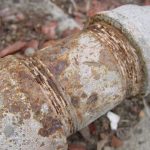Picture this: you step into your shower, ready to let the warm water wash away the stresses of the day. But instead of a relaxing experience, you find yourself ankle-deep in murky water. A clogged shower drain can quickly turn your peaceful oasis into a frustrating nightmare.
That’s why preventing a shower clog is so important. Not only does it save you from dealing with the hassle and expense of plumbing repairs, but it also ensures that your daily showers remain luxurious and stress-free.
In this blog post, we’ll explore some simple yet effective ways to prevent a shower clog. From using drain screens to natural solutions, we’ve got you covered. So get ready to bid farewell to pesky clogs and enjoy uninterrupted bliss every time you step foot in your shower!
Why Preventing Clogged Shower Drain is Important
There’s no denying the importance of a properly functioning shower drain. Not only does it ensure that water flows smoothly down the drain, but it also prevents unpleasant odors and potential water damage to your bathroom. So why should you make preventing clogged shower drains a priority?
Dealing with a clogged shower drain can be incredibly frustrating. It disrupts your daily routine and turns something as simple as taking a shower into a messy ordeal. Nobody wants to start their day by wrestling with standing water or trying to unclog stubborn blockages.
Additionally, neglecting to prevent clogs in your shower drain can lead to more serious plumbing issues down the line. A small hairball may seem harmless at first, but over time it accumulates and combines with soap scum and other debris, creating an impenetrable barrier within the pipes.
This accumulation restricts water flow and puts unnecessary strain on your plumbing system. Eventually, this could result in costly repairs or even pipe replacements if left unresolved for too long.
Purchase/DIY a Drain Screen
When it comes to preventing shower clogs, one of the most effective measures you can take is purchasing or DIY-ing a drain screen. This simple yet powerful tool serves as a barrier between your drains and any potential debris or hair that may try to sneak its way down.
If you opt to purchase a drain screen, there are various options available on the market. Look for screens with small holes that will effectively catch hair and other particles without obstructing water flow. These screens are typically made of durable materials such as stainless steel or silicone, ensuring longevity and easy cleaning.
Alternatively, if you’re feeling crafty, you can make your own drain screen using household items. For example, an old pantyhose or stocking stretched over the drain can act as an impromptu filter. Just be sure to secure it tightly so nothing slips through!
By investing in or creating a drain screen for your shower, you’ll significantly reduce the risk of clogs occurring in the first place. It’s a small step that can have big rewards in terms of maintaining proper drainage and preventing costly plumbing repairs down the line!
Avoid Activities Your Shower Wasn’t Meant For
Your shower is designed to handle water and body wash, but it’s not built for everything. To prevent a clogged shower drain, it’s important to avoid certain activities that can lead to blockages.
One of the main culprits is hair. While it’s natural for some hair to go down the drain during showers, excessive amounts can cause clogs. To minimize this problem, consider brushing your hair before getting in the shower to remove loose strands.
Another activity to steer clear of is washing pets in the shower. While bathing your furry friends might seem convenient, their fur and dander can easily accumulate in the drain and cause a blockage over time. Instead, opt for giving them baths outside or at a designated pet washing station.
Similarly, using your shower as a laundry machine should be avoided. The lint from clothes can build up in the drain pipes and eventually lead to clogs. Make sure you use appropriate appliances for doing laundry rather than relying on your shower.
Be mindful of what goes down the drain when cleaning yourself or objects such as makeup brushes or razors. Avoid letting excess product or debris flow directly into the drain as this can contribute to clogging issues.
Rinse Your Shower Drain Weekly
Rinsing your shower drain on a weekly basis is an essential step in preventing clogs and maintaining the efficiency of your plumbing system. Over time, soap scum, hair, and other debris can accumulate in your drain, leading to blockages that can cause water to back up or drain slowly.
To rinse your shower drain effectively, start by removing any visible debris from the surface using a pair of gloves or tweezers. Then, run hot water down the drain for several minutes to help flush out any remaining buildup.
For an extra boost of cleaning power, you can use a mixture of baking soda and vinegar. Simply pour about half a cup of baking soda down the drain followed by one cup of vinegar. Let it fizz for a few minutes before rinsing with hot water.
Another option is to use commercial drain cleaners specifically designed for showers. These products are formulated to break down stubborn clogs and prevent future buildup when used regularly.
Avoid Using Oily Products
When it comes to keeping your shower drain clear and clog-free, one important step is to avoid using oily products. While they may seem harmless, oils from shampoos, conditioners, body washes, and soaps can build up in your drain over time and contribute to clogs.
Oils have a tendency to cling onto the sides of pipes, creating a sticky residue that traps hair and other debris as it washes down the drain. This combination forms a solid blockage that restricts water flow and leads to frustrating clogs.
To prevent this from happening, opt for oil-free or light oil products whenever possible. Look for labels that explicitly state “oil-free” or “non-comedogenic.” These products are designed not to leave behind any greasy residue.
Additionally, be cautious when using oil-based beauty products like bath oils or exfoliating scrubs containing oils. While these may provide nourishment for your skin, they can wreak havoc on your plumbing system if improperly rinsed away.
Use a Hair Catcher
One simple and effective way to prevent shower clogs is by using a hair catcher. When you wash your hair in the shower, strands of hair can easily go down the drain and cause blockages over time. A hair catcher is designed to catch these hairs before they make their way into the drain.
Hair catchers are widely available and come in various styles, such as mesh screens or small baskets that sit on top of the drain. They are easy to install and can be removed easily for cleaning.
By using a hair catcher, you can significantly reduce the amount of hair that goes down your drain, preventing clogs from forming. It’s a small investment that can save you from dealing with costly plumbing repairs down the line.
Use Natural Solutions
When it comes to preventing shower clogs, sometimes the simplest solutions are the best. Instead of relying on harsh chemicals or expensive drain cleaners, consider using natural remedies that are not only effective but also environmentally friendly.
One popular natural solution is a mixture of baking soda and vinegar. Simply pour half a cup of baking soda down your drain, followed by half a cup of vinegar. Let it sit for about 10 minutes before rinsing with hot water. The chemical reaction between the two ingredients helps break down any buildup in your pipes.
Another option is using salt and boiling water. Mix half a cup of salt with boiling water and carefully pour it down your drain. The heat from the water will help dissolve any greasy residue while the abrasive properties of salt can help remove stubborn grime.
Additionally, lemon juice can be used as an effective natural cleaner due to its citric acid content. Squeeze some fresh lemon juice into your drain and let it sit for about 15 minutes before rinsing with hot water.
Use a Plunger
When it comes to preventing shower clogs, using a plunger can be a lifesaver. This handy tool is not just meant for unclogging toilets; it can also effectively clear out stubborn clogs in your shower drain.
To use a plunger, start by removing the drain cover and filling the shower basin with enough water to cover the rubber part of the plunger. Place the plunger over the drain opening and push down firmly, creating suction. Then, quickly pull up on the handle to create pressure that will dislodge any blockages.
Repeat this plunging motion several times until you feel or see the water draining freely. It may take a few tries to completely clear the clog, so be patient and persistent.
Remember to always clean your plunger after each use by rinsing it thoroughly with hot water and soap. This will help prevent any bacteria or debris from spreading onto other surfaces.
Sometimes, despite our best efforts, a shower clog can still occur. When all else fails, it may be time to call in the professionals – a plumber. While some minor clogs can be resolved with DIY methods, there are instances where the expertise of a plumber is necessary.
Plumbers have the tools and knowledge to tackle even the toughest shower clogs. They are trained in identifying the underlying cause of the clog and using appropriate techniques to unclog your drain effectively.
By calling a plumber, you can save yourself from further frustration and potential damage to your plumbing system. Additionally, they can provide valuable advice on how to properly maintain your drains and prevent future clogs.
Conclusion
Preventing a clogged shower drain is essential for maintaining the functionality and cleanliness of your bathroom. By following these simple tips, you can save yourself from the hassle and expense of dealing with a plumbing repair.
Remember to purchase or DIY a drain screen to catch any debris before it enters your drain. Avoid engaging in activities that your shower wasn’t designed for, such as washing pets or disposing of large amounts of hair. Make it a habit to rinse your shower drain weekly with hot water to prevent buildup.
Consider using natural solutions like vinegar and baking soda on occasion to keep your drains clean and odor-free. In case of minor clogs, grab a plunger and try clearing them out yourself.





